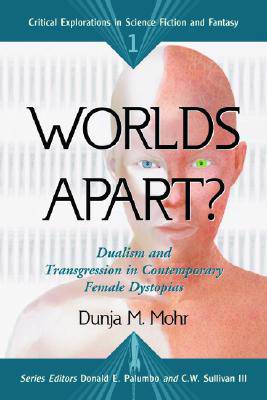
- Retrait gratuit dans votre magasin Club
- 7.000.000 titres dans notre catalogue
- Payer en toute sécurité
- Toujours un magasin près de chez vous
- Retrait gratuit dans votre magasin Club
- 7.000.0000 titres dans notre catalogue
- Payer en toute sécurité
- Toujours un magasin près de chez vous
Description
Literary critics and scholars have written extensively on the demise of the "utopian spirit" in the modern novel. What has often been overlooked is the emergence of a new hybrid subgenre, particularly in science fiction and fantasy, which incorporates utopian strategies within the dystopian narrative, particularly in the feminist dystopias of the 1980s and 1990s. The author names this new subgenre "transgressive utopian dystopias."
Suzette Haden Elgin's Native Tongue trilogy, Suzy McKee Charna's Holdfast series, and Margaret Atwood's The Handmaid's Tale are thoroughly analyzed within the context of this this new subgenre of "transgressive utopian dystopias." Analysis focuses particularly on how these works cover the interrelated categories of gender, race and class, along with their relationship to classic literary dualism and the dystopian narrative. Without completely dissolving the dualistic order, the feminist dystopias studied here contest the notions of unambiguity and authenticity that are generally part of the canon.
Spécifications
Parties prenantes
- Auteur(s) :
- Editeur:
Contenu
- Nombre de pages :
- 320
- Langue:
- Anglais
- Collection :
- Tome:
- n° 1
Caractéristiques
- EAN:
- 9780786421428
- Date de parution :
- 15-06-05
- Format:
- Livre broché
- Format numérique:
- Trade paperback (VS)
- Dimensions :
- 154 mm x 229 mm
- Poids :
- 453 g

Les avis
Nous publions uniquement les avis qui respectent les conditions requises. Consultez nos conditions pour les avis.






